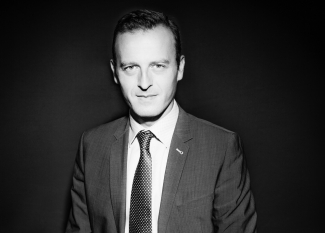Reaction to U.S. Election Results
Europe needs better relations between Moscow and Washington. President-Elect Donald Trump spoke on the campaign trail of mending U.S. relations with Russia.

“Common sense says this cycle, this horrible cycle of hostility must end and ideally will end soon,” Trump said about Russia in April. If he succeeds, it will be a positive step for at least some Europeans. Indeed, U.S.-Russia relations have become a critical matter for the European Union in recent years. But is Trump really willing and able to make a “great deal” with President Vladimir Putin? On what basis will he do so, and will he exclude Europe from these discussions?
Over the past four years, Russia has caused more trouble for the United States and the European Union than any other power. From Syria to Ukraine, Russia has restored its geopolitical influence by military means even as its geoeconomic influence has waned as a result of low oil prices and sanctions. Having a precise assessment of Russia’s strategic, political, economic, and societal trends should be a top priority for the Trump administration.
In the short term, the Obama administration should avoid any type of miscalculation with the Kremlin. This will not be an easy task given the Russian leadership’s self-confidence. Addressing the Valdai Discussion Club during a meeting last month, President Vladimir Putin criticized Westerners for their policies toward Syria and Ukraine. He also blamed them for having imposed sanctions on Russia after attacks on Ukraine. However, he declared himself ready to deal with the next U.S. president on all the most delicate issues. After the election, Putin expressed hope for restoring ties “from their state of crisis.”
The current U.S.-Russia confrontation is problematic because it is a deep-seated, systemic issue for Moscow, but more situational for the United States. Even with Trump, this basic fact of U.S.-Russian confrontation will not change quickly, and this could have deep consequences for Europe. A long-term confrontation between the United States and Russia will make both states, but especially Russia, weaker and the world more unstable. This may benefit China, but certainly not the European Union because Russia has remained Europe’s third-largest trading partner (after the United States and China), its main energy supplier (even if it’s declining), and the major military power at its border.
A new U.S. policy toward Russia needs to be designed quickly and alongside the EU. A critical question is, will the new Trump administration include Europe in its attempts to make a “great deal” with Russia? Nothing is certain at this stage. In the short term, further escalation should be avoided. Restoring high-level military channels of communication between Moscow and Washington might be possible. Ending the Trans-Pacific Partnership and the Transatlantic Trade and Investment Partnership, which Trump advocated for during his campaign, sounded good in Moscow. In the next four years, the United States should try to include Russia in its new trade or governance agreements, if there are any. The debate on sanctions will be the real test for the new Trump administration, given that there are different schools of thought on this issue within the Republican party. Conflicting positions on the use of sanctions may also divide Europeans further. In any case, the EU needs Moscow and Washington to improve their relationship.

Media:

Share





